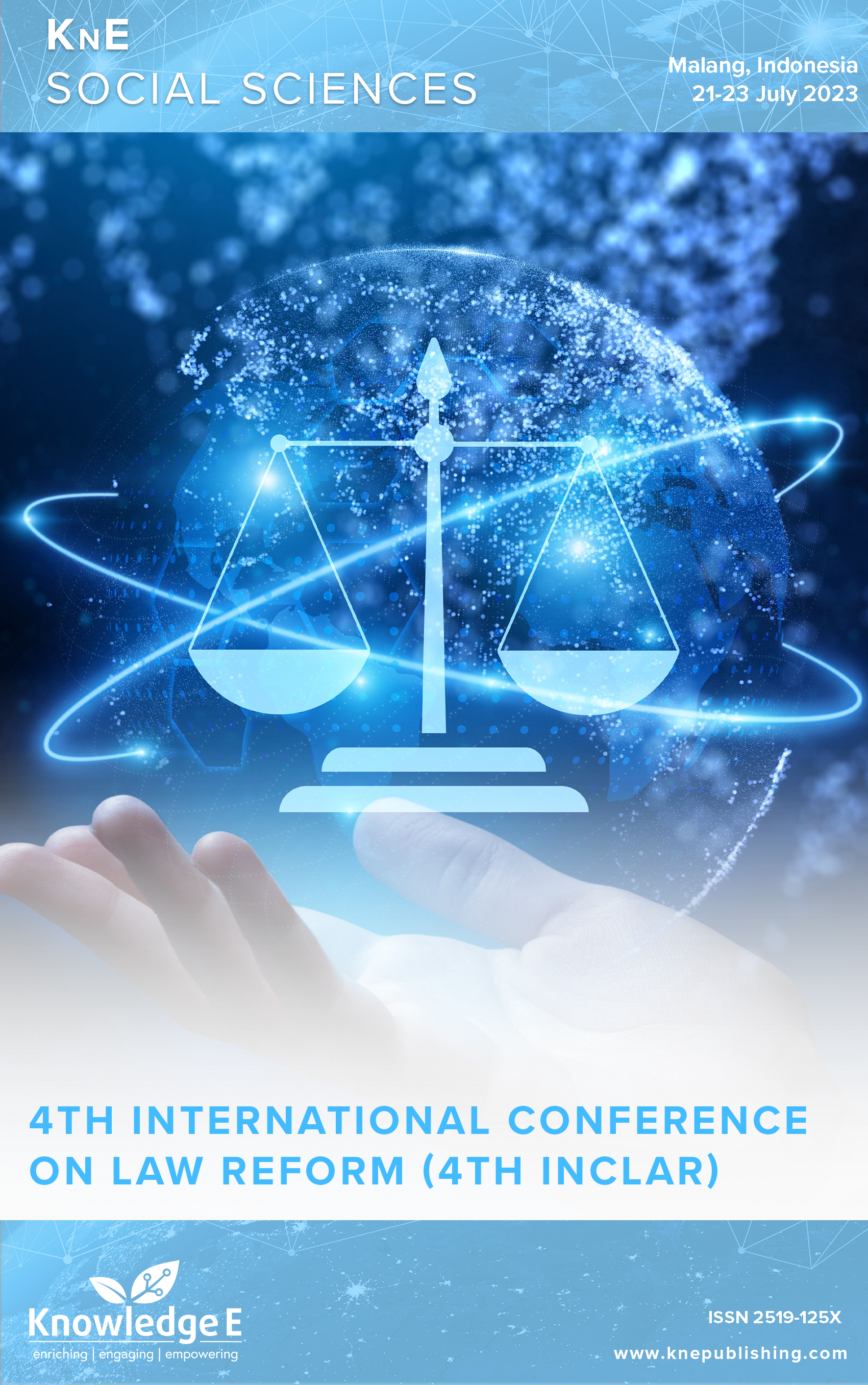Analysis of the Mechanism for Dismissal of Judges of the Constitutional Court by the House of Representatives of the Republic of Indonesia
DOI:
https://doi.org/10.18502/kss.v8i21.14765Abstract
The Constitutional Court Law has regulated mechanisms related to the dismissal of constitutional judges. However, in practice, Constitutional Court judges can be dismissed unilaterally by the House of Representatives. This is not based on existing legal provisions regarding the dismissal of Constitutional Court judges. The formulation of the problem in this study is to analyze the mechanism for dismissing judges of the Constitutional Court of the Republic of Indonesia by the House of Representatives and the juridical implications. This research aimed to find out and analyze the mechanism of dismissal of constitutional judges by the DPR RI and find out its juridical implications. The research method used is normative juridical research method. The results of this study are first, the mechanism for dismissing judge Aswanto carried out by the DPR that has violated the mechanism for dismissing judges contained in the Constitutional Court law. Therefore, the dismissal carried out by the DPR is contrary to the law. Second, the juridical implications, among others, will become a precedent for other proposing institutions to carry out the dismissal of Constitutional Court judges, reducing the independence of the Constitutional Court. The Honorary Council of the Constitutional Court cannot play a major role in the mechanism for dismissing MK judges.
Keywords: mechanism, dismissal, constitutional judge, constitutional court
References
Fahmi Muhammad AJ. Metode Penelitian Hukum. Jakarta: Lembaga Penelitian; 2010.
Esfandiari F, Al Fatih S. Initiating a permanent electoral body to resolve dignified election disputes: Assessing the effectiveness of Gakkumdu. Yust J Huk. 2020;9(3):333. DOI: https://doi.org/10.20961/yustisia.v9i3.44437
Kompas H. “Aswanto Ingin ke DPR untuk Berpamitan dan Mengucapkan Terima Kasih Back To BDM Bersama Aswanto,” 2022.
Asshiddiqie J. Konsolidasi Naskah UUD 1945. Setelah perubahan keempat. Jakarta: Pusat Studi Hukum Tata Negara Fakultas Hukum Universitas Indonesia; 2002.
M. P. dan Kebudayaan, KBBI. .
Esfandiari F. Ethical draft preparation of boarding house Res. Dedik. Huk. 2021;1(1):73–86. DOI: https://doi.org/10.22219/jdh.v1i1.16332
Fitria Esfandiari SA, Duflitama Astesa, Sidiq Pramono Ganisha, Lavia Ridha Tivania Rachmaudina, Nurhafidz Maskat Maualana. “New normal as an opening door to state financial stability through the post-PSBB tourism sector.” SALAM J Sos dan Budaya Syar-i, pp. 1513–1526, 2021. DOI: https://doi.org/10.15408/sjsbs.v8i5.22487
Purnamasari GC. Kewenangan Mahkamah Konstitusi Dalam Melakukan Judicial Review Terhadap Undang-Undang Ratifikasi Perjanjian Internasional. Refleks. Huk. J. Ilmu Huk. 2018;2(1):1–16. DOI: https://doi.org/10.24246/jrh.2017.v2.i1.p1-16
Satria DF, Haruni CW, Esfandiari F. Kepastian Hukum terhadap Iuran Peserta BPJS Pasca Putusan Mahkamah Agung Nomor 7P/HUM/2020. Indones. Law Reform J. 2021;1(2):153–64. DOI: https://doi.org/10.22219/ilrej.v1i2.16934
“Rekapitulasi Putusan,” 2022. [Online]. Available: https://www.mkri.id/index.php?page=web.Perkara2&
F. dkk Esfandiari, “Pendampingan Akad dan Sertifikasi Halal MUI serta Edukasi Jaminan Produk Halal pada Minuman Cangloh di Mergosono Kota Malang,” Dedik. Huk. 2021;1(2):1–13. DOI: https://doi.org/10.22219/jdh.v1i2.17607

